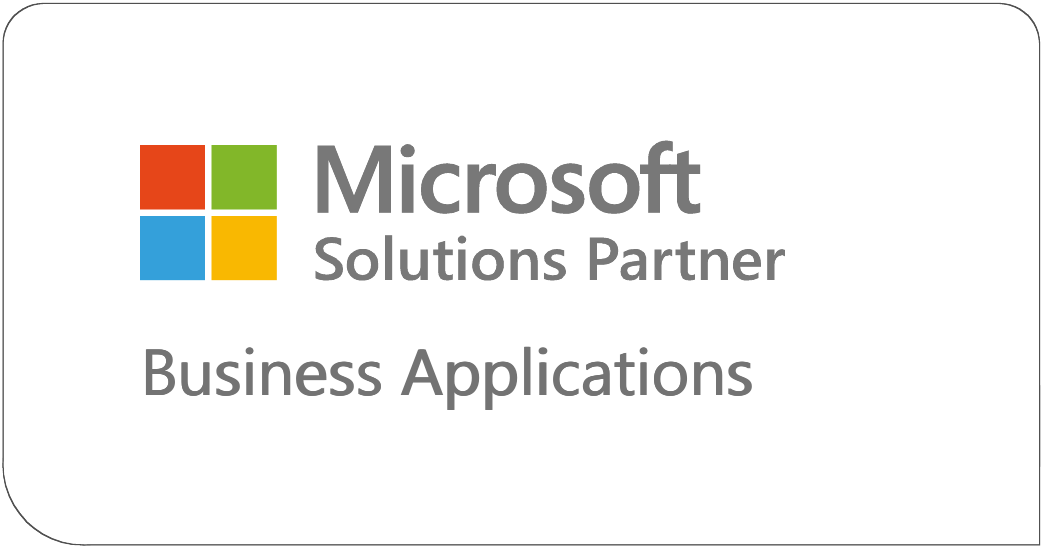| IMPERIUM DYNAMICS
Outsourcing IT through a white label model helps small businesses offer strong IT support without the need for an in-house team. They partner with experts to get top-notch support and security. Adding Microsoft Managed Services boosts their offerings with cloud and productivity solutions under their brand.

This approach makes operations smoother, saves money, and improves customer happiness. It's perfect for small businesses aiming to grow efficiently.
What Are White Label Managed IT Services?
White label managed IT services let companies use
third-party solutions as their own. This way, they can
fill gaps without hiring more people or buying more
equipment. A white label MSP takes care of IT tasks, and
the company presents these services as their own.
This model gives customers a seamless experience. They
only see the company's logo and name, not the actual
provider.
Challenges in Small Business IT Support
Small businesses often can't afford to hire full-time IT
staff. Yet, they need reliable IT to stay productive and
secure. They also struggle to keep up with new tech and
security threats.
Scaling IT support to grow can be very expensive. Adding
new staff, equipment, and training costs a lot.
Benefits of White Label Managed IT Services
White label managed IT services save money, offer
specialized skills, and grow quickly. These are key for
small businesses to compete. Outsourcing to a white
label MSP turns fixed IT costs into variable ones, based
on usage.
This flexibility lets small businesses focus on their
core activities and growth. They don't have to worry
about IT infrastructure.
Improved Efficiency and Focus
With a white label provider handling routine tasks, teams can focus on innovation and customer service. Automated monitoring and quick issue solving reduce downtime. This makes workflow smoother and boosts productivity.
Access to Specialized White Label Product Support
White label product support helps with technical issues and keeps service levels high. It's done under the company's brand. This ensures consistent, high-quality support without the need for extensive support infrastructures.
Enhanced Security with a White Label MSP Security Provider
Engaging a white label MSP security provider gives access to top-notch cybersecurity services. This includes vulnerability assessments and intrusion detection. Providers like GraVoc offer solutions that meet industry standards like GDPR and HIPAA.
Turnkey White Label Technical Support
White label technical support includes help desk services and remote troubleshooting. It's all done under the reseller's name. Providers like Spyce Media focus on scalability and cost-effectiveness, helping small businesses handle growth without sacrificing quality.
Leveraging Microsoft Managed Services in a White Label Model
Using Microsoft Managed Services under a white label
model adds to capabilities. It includes Office 365
administration and Azure cloud management. Through the
Microsoft AI Cloud Partner Program, resellers can offer
AI-powered services under their brand.
Azure Marketplace also has customizable white label
solutions. These make deploying and branding
Microsoft-based services easier.
Best Practices for Partnering with a White Label Managed Services Provider
- Define Service Scope and SLAs: Clearly outline which services (e.g., white label product support, cybersecurity, cloud migration) the provider will supply. Establish performance metrics such as response times and uptime guarantees.
- Evaluate Security and Compliance Posture: Ensure the provider maintains certifications (ISO 27001, SOC 2). They should also support regulatory requirements relevant to your industry.
- Align Branding and Communication: Coordinate marketing materials, support portals, and customer communications. This ensures a seamless transition between your company and the provider for end-users.
- Plan for Scalability: Verify that the provider can scale services dynamically. This means adding help desk agents or increasing monitoring without service degradation.
- Establish Governance and Oversight: Implement regular performance reviews, joint governance meetings, and escalation paths. This maintains oversight and continuous improvement.
Case Studies
TechCo’s Rapid Service Expansion
TechCo, a small IT consultancy, struggled to meet demand for 24/7 support and advanced security. By white-labeling help desk and SOC services, they increased client capacity by 50% within six months. They achieved sub-hour average response times—without hiring additional staff.
RetailCorp’s Cloud Migration Success
RetailCorp partnered with a white label Microsoft Managed Services provider to migrate legacy infrastructure to Azure. The turnkey solution included branding, end-user training, and ongoing management. This resulted in a 30% reduction in infrastructure costs and improved system reliability.
Steps to Implement White Label Managed IT Services
- Assess Internal Needs: Conduct an IT audit to identify skill gaps, support volume, and security requirements.
- Select Qualified Providers: Research and shortlist white label MSPs with proven track records in your industry. Look for specific services you need (e.g., product support, security, Microsoft Managed Services).
- Pilot a Service Bundle: Start with a limited scope—such as white label technical support. Validate processes, branding, and SLAs.
- Integrate Systems and Workflows: Connect your ticketing, monitoring, and collaboration platforms with the provider’s systems. Ensure data flow and unified reporting.
- Train Internal Teams: Provide orientation on escalation procedures, customer hand-off protocols, and service management best practices.
- Scale and Optimize: Gradually expand the partnership to include additional services—such as white label product support and cybersecurity. Refine processes based on performance metrics.
Key Components of White Label Managed IT Services
1. Network Operations Center (NOC) and Helpdesk Support
A white label NOC watches over your network 24/7. It finds and fixes problems before they bother users. The helpdesk offers support levels from basic to advanced, all under your brand.
2. Cloud and Infrastructure Management
White label MSPs handle your cloud and datacenter needs. They manage everything from capacity to cost, all branded for you. This lets small businesses focus on their core, with guaranteed service levels.
3. Security and Compliance Services
Partnering with a white label MSP security provider gives you top-notch security. They do vulnerability checks, patch management, and more, all under your name. They meet strict standards like ISO 27001 and SOC 2.
4. White Label Product and Technical Support
Advanced support goes beyond just fixing tickets. It includes hardware checks, software fixes, and training, all branded for you. This support grows with your business, without adding staff.
Modern MSP Technology Stack and Tools
A modern white label MSP uses a tech stack for automation and security:
- Remote Monitoring & Management (RMM): Tools like ConnectWise Automate or NinjaOne for continuous monitoring and patching.
- Professional Services Automation (PSA): Platforms like Autotask or ConnectWise Manage for ticketing and billing.
- Security Information and Event Management (SIEM): Cloud-based SIEM solutions (e.g., Splunk, Azure Sentinel) for real-time threat analysis.
- Collaboration and Documentation: Branded portals via platforms like Help Scout or Zendesk for client support.
- Automation & Orchestration: Tools like Microsoft Power Automate, Zapier for automating tasks and speeding up responses.
These tools create a strong, scalable base for your white label services.
Measuring ROI and Business Impact
Predictable Costs and Improved Margins
White label MSPs offer subscription-based pricing. This makes budgeting easier and avoids unexpected costs. It also lets you increase your profit margins and improve cash flow.
Efficiency Gains and Revenue Growth
Outsourcing routine tasks frees up your team for more important work. This leads to better uptime, faster issue solving, and happier clients. Happy clients mean more renewals and chances to sell more services.
Quantitative Metrics to Track
- Cost per Ticket: Compare the cost of in-house vs. white label support to see savings.
- Client Retention Rate: Aim for >95% annual renewal by providing consistent support.
- Time to Resolution (MTTR): Compare your MTTR to industry standards (e.g., < 4 hours for Priority 1 tickets).
- Utilization Rate: Track internal vs. outsourced ticket volumes to optimize staffing.
Common Pitfalls and How to Avoid Them
1. Poor Communication Protocols
Not sharing information well can lead to missed deadlines or mixed messages to clients. Make sure to have clear ways to escalate issues, weekly updates, and use tools like Slack or Microsoft Teams for team communication.
2. Inadequate Scalability Planning
Picking a provider without flexible resources can hurt your service when you grow. Look for providers that can scale up quickly and clearly explain any cost changes.
3. Misaligned SLAs and KPIs
Not having clear goals can lead to disagreements and unhappy clients. Set specific SLAs (like quick responses to urgent issues) and check KPIs with your MSP every month.
4. Neglecting Security Due Diligence
Not checking a provider's security can put your data at risk. Make sure to check their security measures, ask for penetration test reports, and confirm they use strong encryption and access controls.
Future Trends and Innovations
AI‑Driven Automation and Chatbots
By 2025, AI chatbots will handle up to 40% of simple support tasks. This means fewer tickets for human agents, making support faster and more efficient.
Hybrid and Multi‑Cloud Management
Soon, providers will offer tools to manage services across different clouds like Azure, AWS, and Google Cloud. This will help improve performance and save money in real time.
Vertical‑Specific White Label Services
MSPs will start offering special services for industries like healthcare, finance, and retail. These services will include tools for compliance and dashboards tailored to each industry's needs.
Embedded Analytics and Business Intelligence
Future white label services will include advanced analytics tools like Power BI. These tools will give you branded, useful insights on how your systems are doing and how users behave, helping you make better decisions.
Conclusion and Future Outlook
White label managed IT services empower small businesses
to deliver enterprise-grade IT support under their own
brand. They combine cost efficiency with specialized
expertise. As demand for agile, scalable IT solutions
grows, we expect the white label model to evolve.
We see deeper AI integrations, automated service
delivery, and expanded Microsoft Managed Services
offerings. Businesses that adopt and optimize white
label partnerships will be best positioned to compete,
innovate, and delight customers in an increasingly
digital marketplace.

